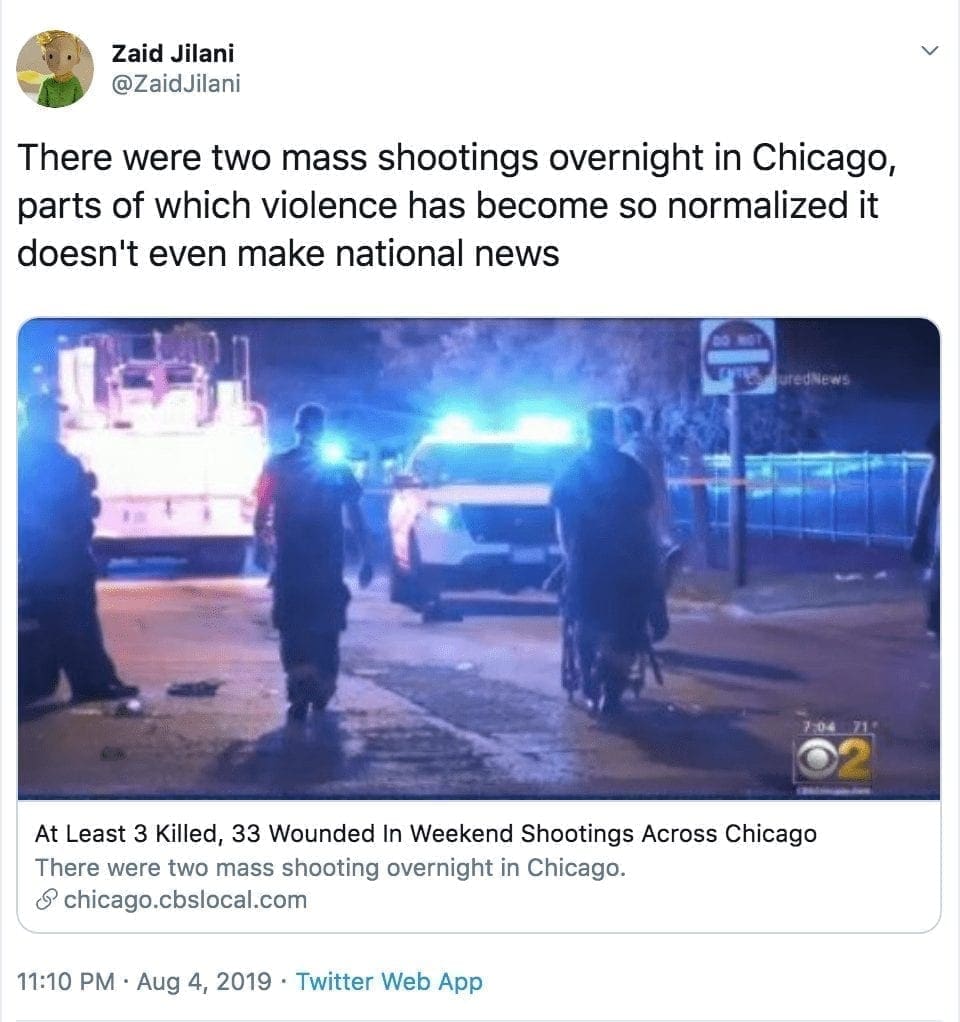Last weekend’s spurt of mass shootings in Dayton, Ohio and El Paso, Texas has brought the dreaded gun control debate back into the mix.
Combine that with identity politics, and we have all the makings for unproductive discussions on public policy.
The media have been quick to blame white supremacy and associate President Donald Trump with this shooting. The shooter’s manifesto is filled with hateful language and anti-immigrant sentiment, which should be condemned. But there’s more to this story than meets the eye.
First of all, white Americans are not the only group carrying out gun violence.
Journalist Zaid Jilani pointed out that there were two mass shootings in Chicago on the night of August 3, 2019. This was the same day that the El Paso massacre took place. He argues that gun violence in Chicago “has become so normalized it doesn’t even make national news.”

Reports from CBS Chicago indicate that three people were killed and 40 were wounded last weekend. Four shootings occurred on August 2, 12 shootings on August 3, and five shootings on August 4. CBS also reported that there were “two mass shootings overnight in Chicago — both in the West Side’s Lawndale neighborhood.”
The state of Illinois has stringent gun controls which include red flag gun confiscation laws. Despite having these laws present, shootings take place regularly. Chicago is one of the urban centers that epitomizes the failure of gun control policies.
While most mainstream conservatives get this at face value, they still are under the illusion that they can make certain gun control schemes work. GOP politicians like Congressman Dan Crenshaw and Senator Lindsey Graham ignore this at their own constituents’ peril as they champion red flag gun confiscation orders as the “solution” to America’s supposed gun violence “crisis.”
In a debate that is filled with so much emotion, researcher John Lott brings cool-headed reasoning. His research has demonstrated that red flag laws are ineffective in hindering crime, let alone stopping mass shootings. After looking at data from 1970 through 2017, Lott determined that “Red Flag laws appear to have had no significant effect on murder, suicide, the number of people killed in mass public shootings, robbery, aggravated assault or burglary. There is some evidence that rape rates rise. These laws apparently do not save lives.”
A more practical example would be the case in Connecticut. The state passed a red flag law in 1999, making it one of the first states in the country to advance such legislation. Gun control proponents would make us think that is the magical solution to gun violence. Well, it didn’t turn out to be that way. Adam Lanza was still able to carry out his massacre at Sandy Hook in 2012.
All in all, there isn’t a legislative quick fix. More than just having every civilian armed, venues should start considering private security options in today’s increasingly polarized political climate.
We must come grips with the fact that the government isn’t going to save us. Often times, it hurts us. On the other hand, there are plenty of solutions both in the market and civil society at our disposal to confront these problems.
Let’s give those a try.

























